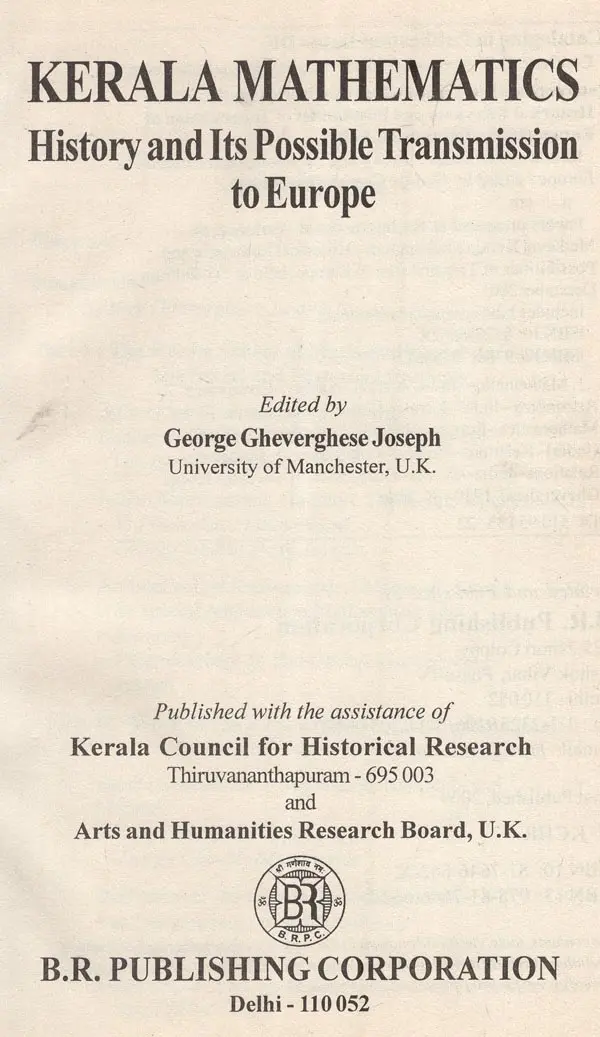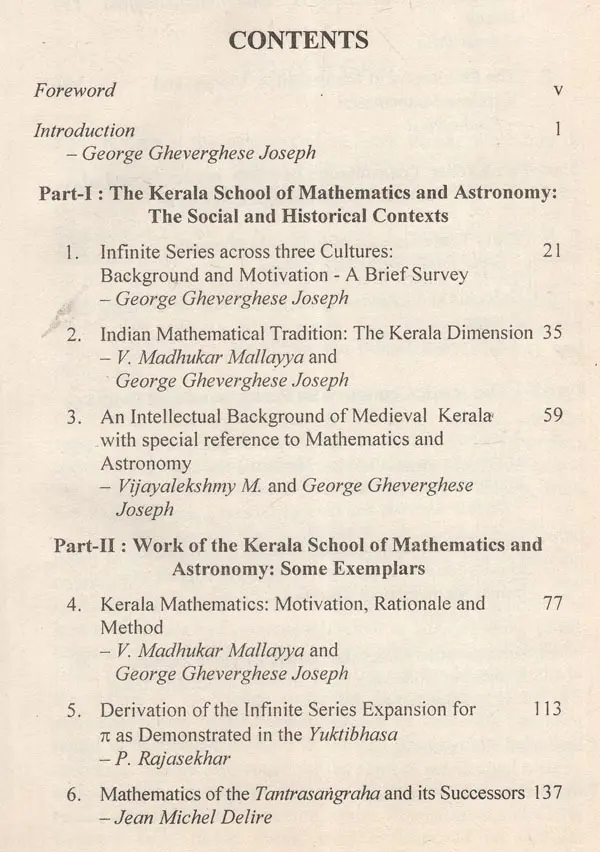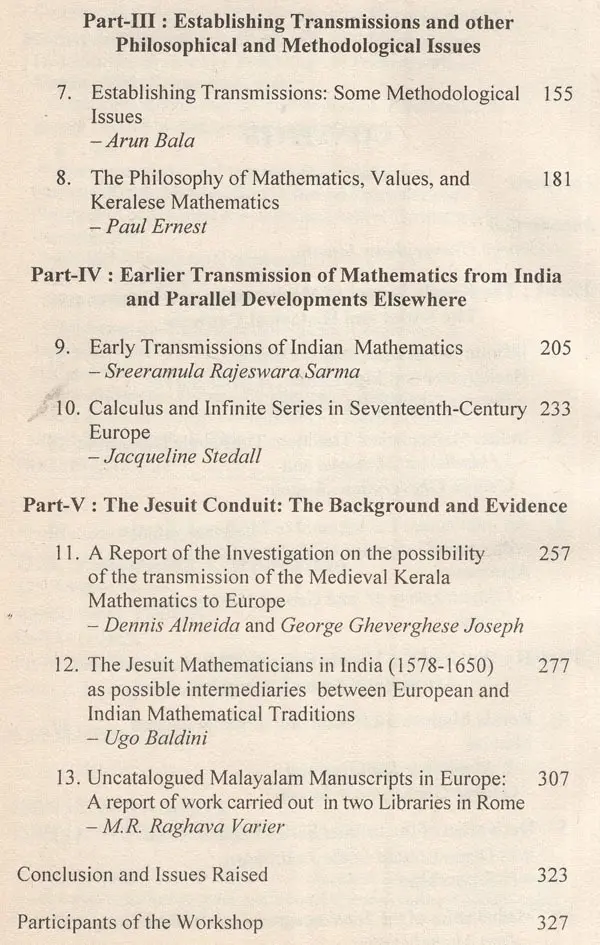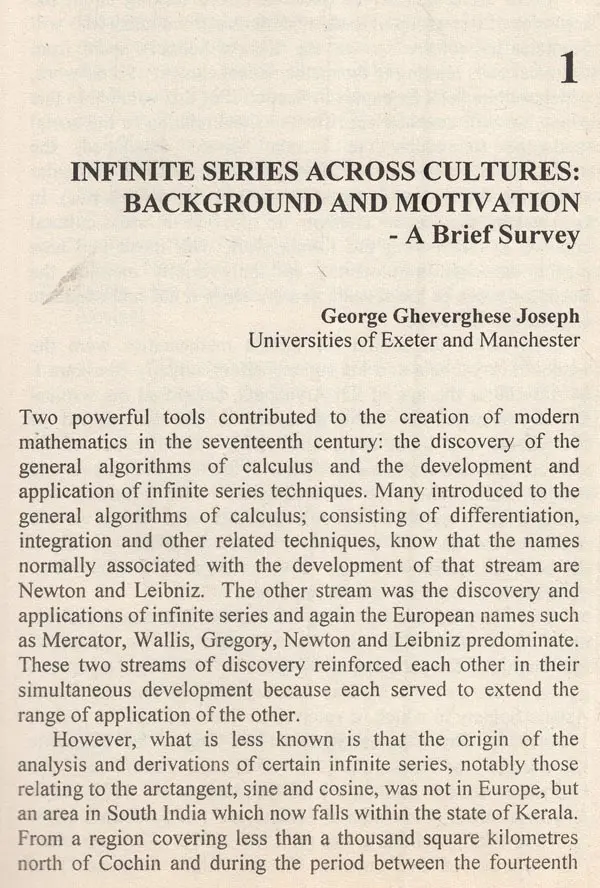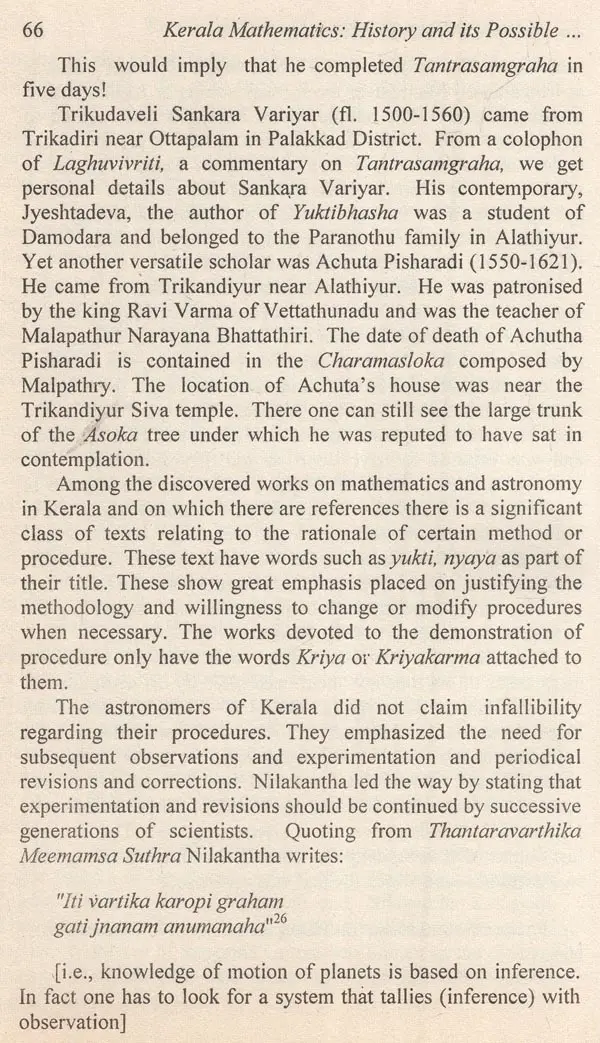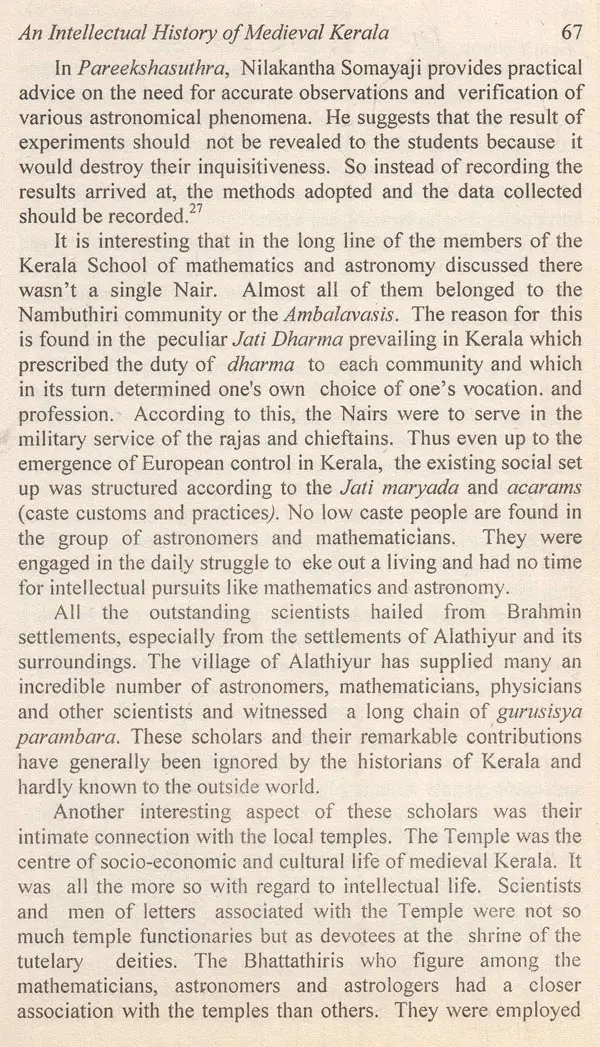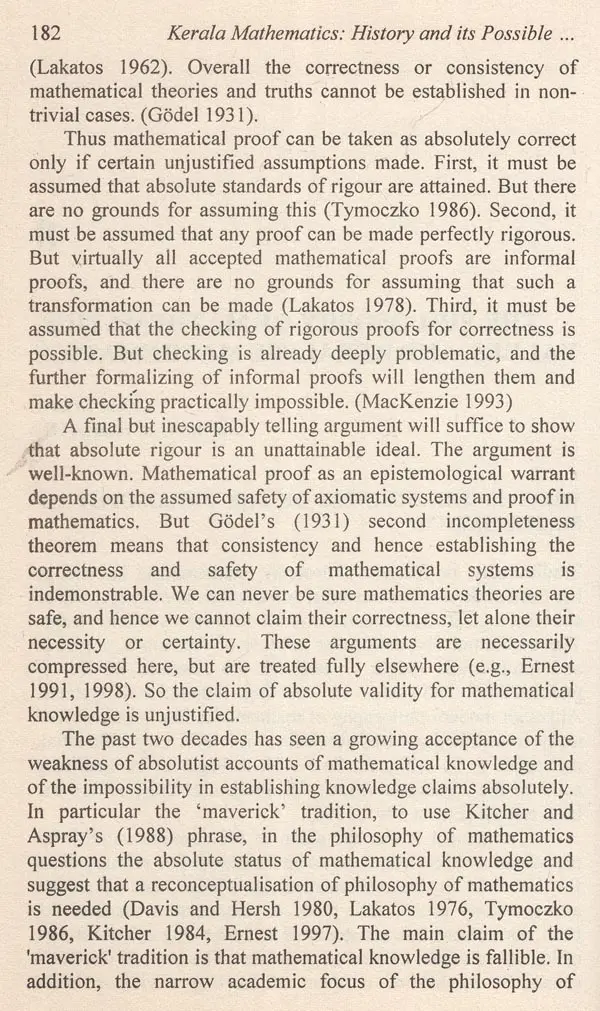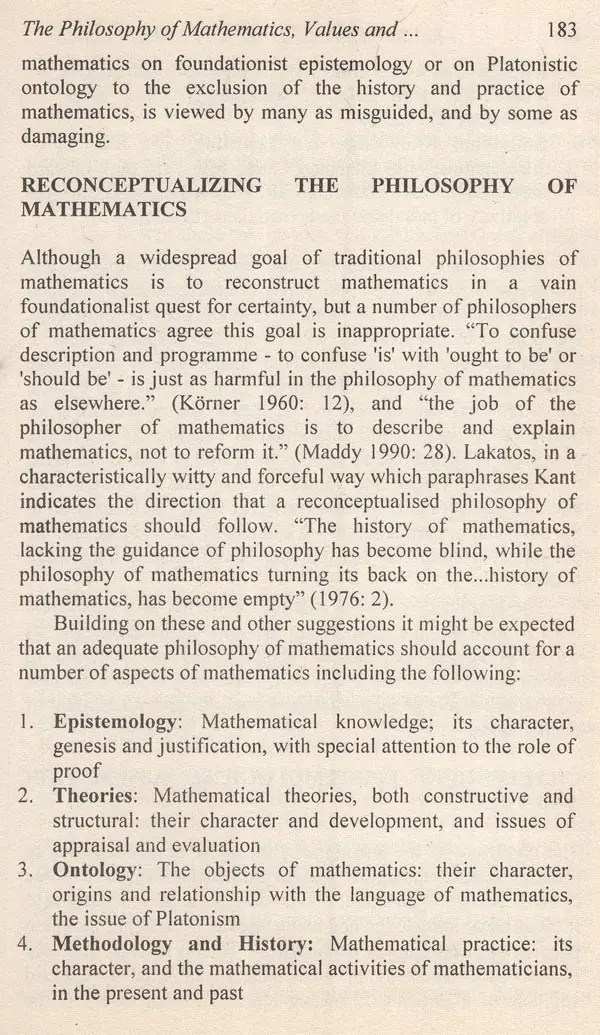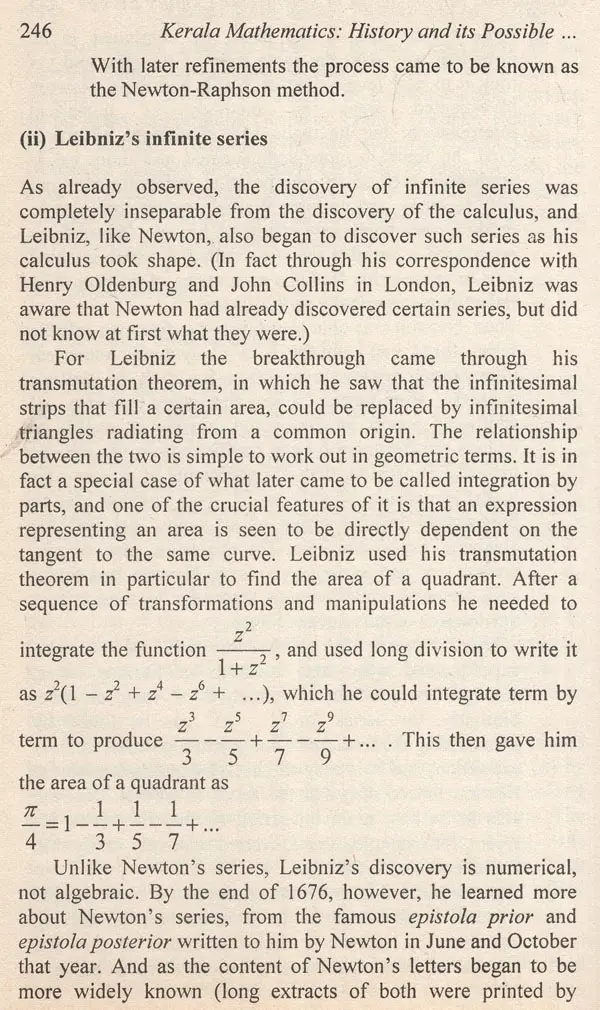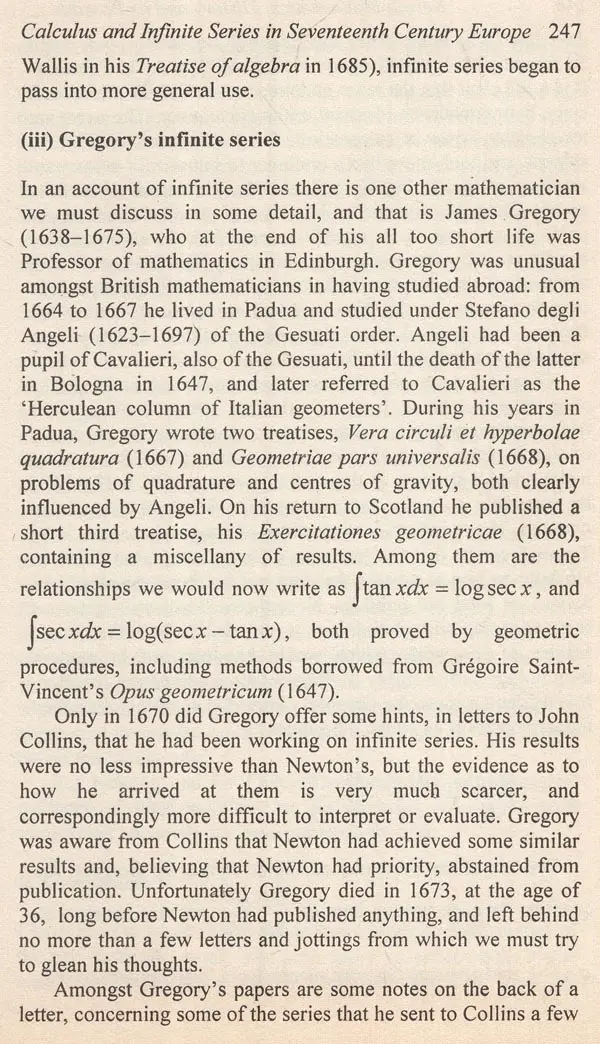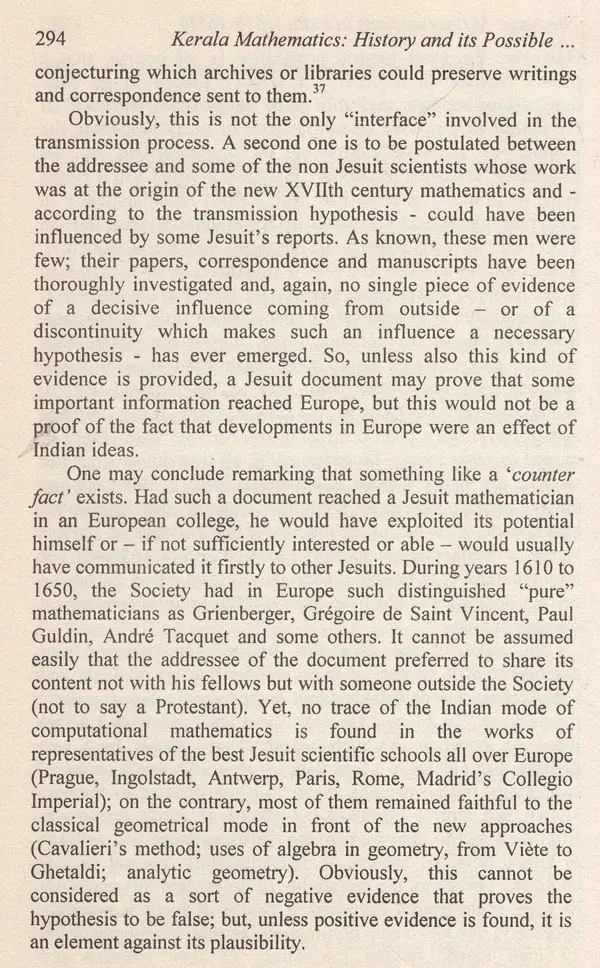
Kerala Mathematics- History and Its Possible Transmission to Europe (An Old and Rare Book)
Book Specification
| Item Code: | UAN116 |
| Author: | George Gheverghese Joseph |
| Publisher: | B.R. Publishing Corporation |
| Language: | English |
| Edition: | 2009 |
| ISBN: | 9788176466622 |
| Pages: | 338 |
| Cover: | HARDCOVER |
| Other Details | 89.00 X 6.00 inch |
| Weight | 490 gm |
Book Description
In the history of mathematics, the invention of calculus and 'the passage to infinity' are seen as major benchmarks in the creation of modern or advanced mathematics. A principal focus of this volume is tracing the beginnings of modern mathematics to India, notably Kerala, and how these ideas and techniques may have been transmitted to Europe. If such transmission proves to be significant, it would help to deconstruct the prevailing Eurocentric account of the development of modern mathematics. To that end invitations were extended to a group of distinguished historians, mathematicians, educators, linguists, philosophers and others to make presentations at a two-day Workshop held in Trivandrum. And this is reflected in the breadth and depth of the papers presented in this volume.
George Gheverghese Joseph was born in Kerala and studied at the University of Leicester and then joined the University of Manchester. He has travelled widely holding university appointments in East and Central Africa, Papua New Guinea and New Zealand as well as a Royal Society Visiting Fellowship in India. In recent years he lectured at Hobart, Monash, Perth and Sydney in Australia; at Cornell, Los Angeles, New Mexico, New York, Berkeley, Chicago and Washington in the United States; at York, Laval and Toronto in Canada and many other universities around the world. In December 2005 he organised an International Workshop in Kerala which was the culmination of an AHRB research project on Kerala Mathematics. He has appeared on Radio and Television programmes in India, United States, Australia, South Africa and New Zealand as well as United Kingdom. In October 2000 he was called to the Bar of the Middle Temple, London. At present he holds joint appointments at University of Manchester and Toronto.
This volume is the outcome of an International Workshop on 'Medieval Kerala Mathematics: Historical Relevance and Possibilities of Transmission of Europe' jointly organized by the University of Exeter, UK and Kerala Council for Historical Research (KCHR), at Kovalam near Trivandrum, Kerala, in December, 2005. The Workshop was supported through a project of the Arts and Humanities Research Board [AHRB], UK. Conceived as an interdisciplinary workshop, it was attended by twenty five scholars from Canada, Italy, United Kingdom and India, belonging to disciplines like Mathematics, History and Philosophy.
The workshop was an offshoot of the AHRB project under Dr. George Gheverghese Joseph - eminent scholar and the author of the acclaimed work, Crest of the Peacock. His project seeks to explore the historical roots of Kerala Mathematics and the possible transmission of certain calculus elements from Kerala to Europe.
According to historical literature, the general methods of the calculus were invented independently by Newton and Leibniz in the late 17th century using the methods of Greek mathematics. However, what is often forgotten, is that important elements of the calculus including numerical integration methods and infinite series derivations for it, sinx, cosx, tan"'x, were already in place in the works of the Kerala mathematician, Madhava and subsequently elaborated by Nilakantha, Jyesthadeva, Sankara Variyar and others between the 14th and 17th centuries.
A history of mathematics may be approached in a number of different ways: as a chronological survey; by tracing the development of a particular theme or subject; through exploration of the life and work of individual mathematicians; or by focussing on specific mathematical communities at a particular time and place. The title of the Workshop: "Kerala Mathematics: History and Possibilities of Transmission," (on which this book is based), could include all these different approaches but the emphasis was on two main themes: a survey of Kerala mathematics (which is but a continuation of the history of Indian mathematics) and an examination of the conjectured transmission of certain fundamental elements of the calculus from Kerala to Europe through the Jesuit conduit.
